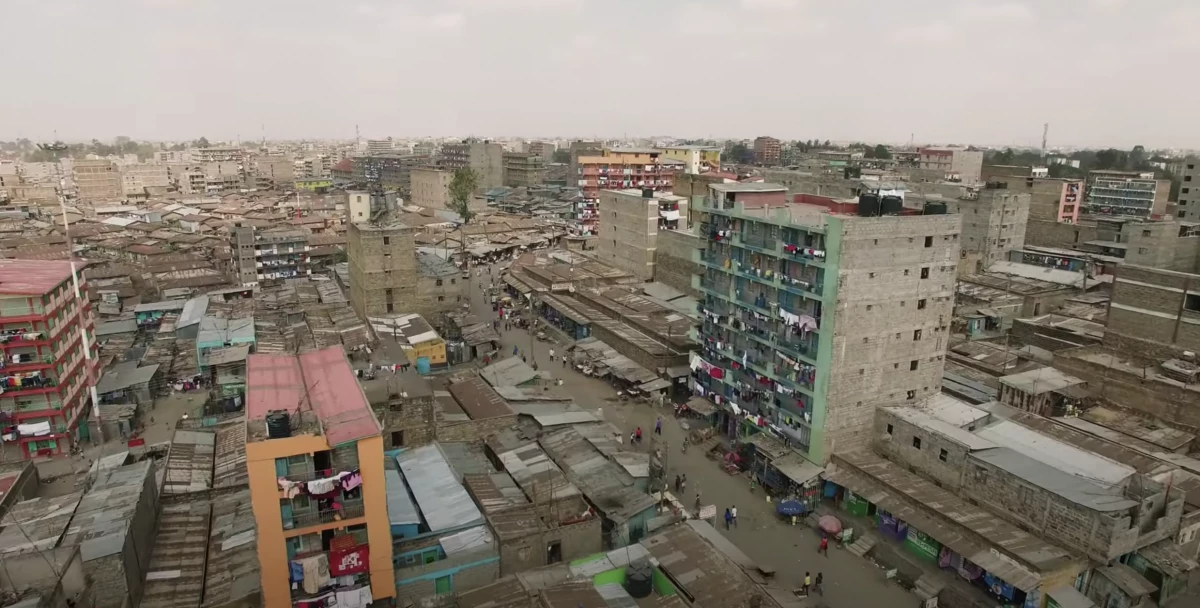Huruma estate: Kanjo’s sympathy gave this Nairobi estate its name
Published on: June 11, 2024 04:17 (EAT)

Huruma estate in Nairobi. 'Huruma' is the Kiswahili word for 'sympathy'. [Photo/Courtesy]

Audio By Vocalize
In 2017 -- Huruma estate topped the list of areas in Nairobi with the most dangerous buildings.
National Construction Authority (NCA) counted 388 buildings.
Did you know that Kanjo’s ‘sympathetic nature’ is what led to the development Huruma estate? Like – ‘watu walionewa huruma’!
‘Huruma’ is Kiswahili word for 'sympathy'.
In sharp contrast to its name, the estate, back in the 1980s and 1990s, and for the longest time, was a playground for criminals – thugs who specialised in dispensing ‘ngeta’ bila huruma – or sympathy if you like.

Residents of the estate then lived in constant almighty fear of being mugged on the streets – or their doors kicked in at night.
This little act of kindness from then Nairobi City Council, did not seem to mean anything to these criminals.
The thugs often targeted drunkards returning home after enjoying Changaa in the neighbouring Mathare, often area late at night.
Did you also know that Huruma estate developed as an offshoot of Mathare? Well, now you know.
“Mathare was sprawling with human population during the post-independence period.
“Most of these were people had just arrived in Nairobi from rural villages to look for jobs in the capital,” says 'Historiographer' and researcher Bethuel Oduo.
Many trooped to Mathare – choosing to leave along the river like the rest – turning the area into a slum.

In order to handle the growing human pressure in Mathare – and stop the slum from spreading exponentially – Nairobi City Council built Huruma flats – says Oduo.
The City Council was being ‘sympathetic’ to the squatters and landless people who could not get space in Mathare.
Many who could afford settled in the new built ‘Huruma’ flats and in the surrounding areas. The entire area was initially a sisal farm – and most of the land was filled with shrub.
Huruma flats were built in the 70s – from where City Council would collect good rent.
Those who could not afford the rent – lived in the nearby low-end houses.
“In the past, it was the duty of Nairobi County Council to build houses for residents of Nairobi to either rent and own, buy or just rent,” says Oduo.
“People who needed land to develop would just apply to Nairobi County Council, and they would get if approved.
As a result, sections of Huruma which had not been developed by the city council were assigned to individuals who could develop them – and rent them out.
A number of City Council employee also received tracks of the land in that manner – as they were ‘insiders’. Most of the lands have been sold off to people with financial means to develop.
Other estates that came up alongside Huruma included Kariobangi South, Kariobangi North, Outering, Civil Servants (Civo).
Meanwhile Mathare estate served as the nerve centre of Huruma estate and other surrounding areas – with cheap liquor as its currency of trade.
“People would leave Huruma to go get drunk in Mathare on foot,” says the historian.
Did we mention that neighbouring Eastleigh Airbase soldiers often found solace and other pleasures in Huruma?


Leave a Comment